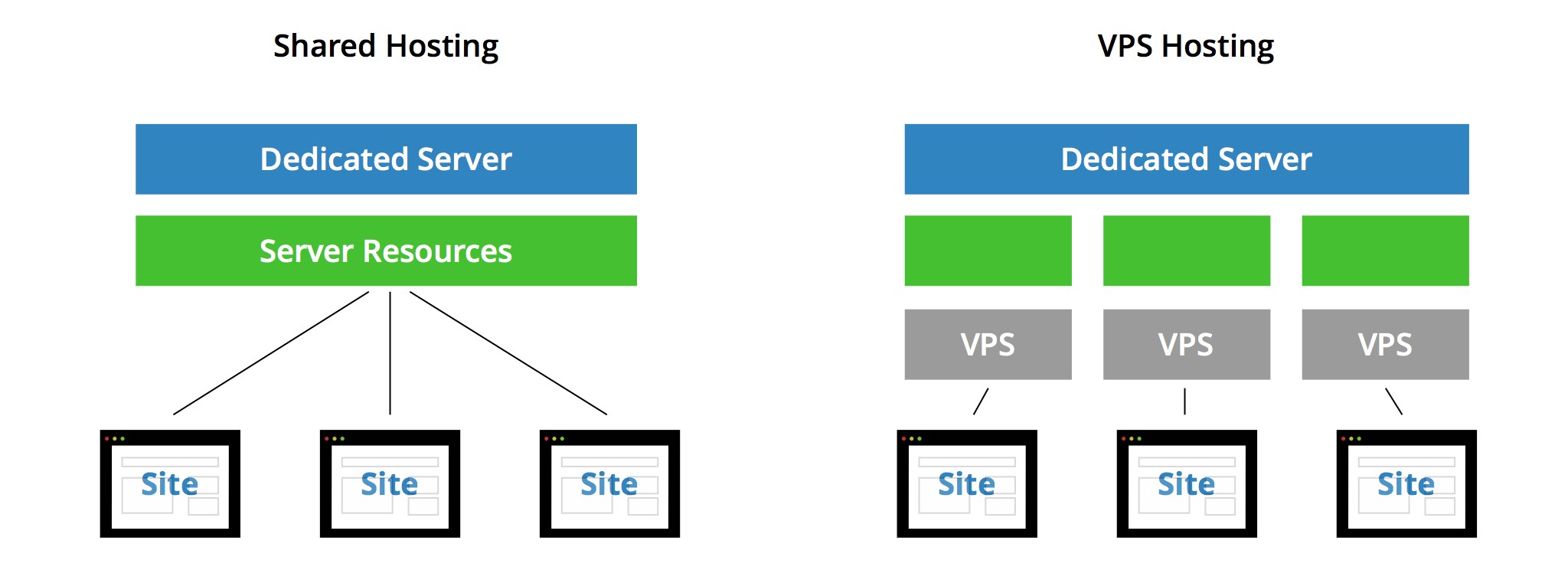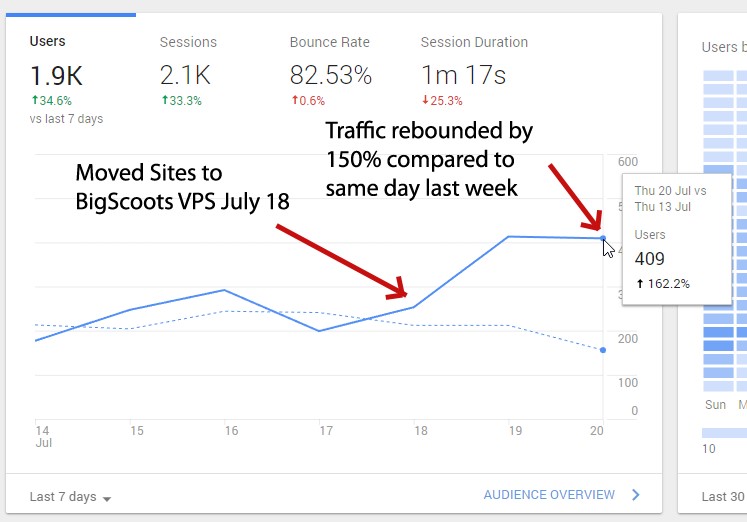VPS vs Shared Host - price vs benefits
Investing in an awesome website without taking much consideration on hosting can be likened to purchasing a new house without considering the neighborhood.
Just like the house analogy, a great website that has a lousy hosting solution is not any good. A couple of years ago, a shared hosting package was all you needed for your business website.
But as the demand for internet services increases, there seems to be a growing need for businesses to switch to VPS hosting.
But before we delve into the nitty-gritty of VPS vs shared hosting, let’s first define the terms. As the name suggests, shared hosting refers to when many different websites are stored on the same server. On the flip side, VPS (Virtual Private Server) hosting is where a client is assigned dedicated server resources which give them greater autonomy.
The main downside for VPS hosting is that it is costlier than shared hosting. But that should be expected for any premium service such as can be seen on this article with an InMotion hosting review on CollectiveRay. But if you’d like to learn more about these two different types of services, the following are some of the most important benefits of VPS hosting for your business.
You’ll find that shared hosting typically starts at around $2 to $9 per month, whilst a VPS starts at around $29 per month.
So is this bump in price actually worth it? What are the benefits of using a VPS when compared to a using normal shared hosting.
1. More dedicated resources

Unlike shared hosting, VPS hosting gives you dedicated resources. With a VPS, you get more disk space, bandwidth, RAM etc.
Ultimately, these resources will translate to better performance and reliability of your website. For instance, the private disk space will allow you to scale up your business operations while at the same time offering your clients an experience that is only a dream for those who are still on shared hosting.
2. Full control of the server
VPS hosting gives you the root access to the server, typically via WHM.
Having root access means you can tweak the server environment as you please to suit your unique needs. For instance, you can open or close a port without having to ask your webhost to do it for you.
Apart from the time it saves, it also gives you lots of flexibility. While shared hosting denies root access to the users because of valid security concerns, the disadvantage is it denies customers the chance to make important tweaks.
A VPS server is the way around these limitations.
3. Handle more simultaneous users

There is a limit to the amount of traffic you can get on a shared hosting account. If you max out your monthly limit, your visitors get locked out.
The webhost may also trigger some controls when they sense too much traffic surging in.
Since a VPS server gives you dedicated resources, you can easily handle lots of simultaneous users without worrying about server timeouts. In the unlikely event that you exhaust your resources, there are always other contingency resources at your disposal.
4. Cutting-edge technology
VPS hosting allows you to stay abreast with the latest technological trends. With a shared hosting, you have to wait until your webhost decides to update the software they have installed.
But since you have full control of a VPS server, you can install the latest versions available and configure them as you wish. This comes in handy when you want to run applications that require the latest version of certain scripts e.g. Apache, Nginx, MariaDB, PHP7, etc.
5. Scalability
Every business owner desires growth. As your business grows, you might need to increase the resources you have. You won’t have to provision your site again if you need to upgrade, it’s a question of moving the plan.
The beauty of VPS hosting is that scaling up your resources can be done effortlessly and seamlessly.
Buying a VPS hosting package makes you one of the premium clients for the company. This means you will enjoy better, faster and dedicated client support. This will come in handy when you want to scale up your business or even if you run into any sort of challenges.
Conclusion
It is, however, important to point out that setting up a VPS server needs some technical knowledge. You may, therefore, need to have a server administrator on staff. This individual will not only help you to set up but also manage the server.
You could also outsource the service to your webhost or a freelancer depending on your budget and the sensitivity of your data. It is also worth noting that VPS hosting is more expensive than shared hosting. While it may be tempting to go the cheaper way, it is advisable to take your hosting needs as a serious business need. If your hosting is not working properly, your online strategy is as good as dead. Though it might cost you a little more, VPS hosting will eventually give you a better ROI than shared hosting.
Related Posts
Cryptocurrency mining has become popular for individuals and businesses to earn passive income and participate in the cryptocurrency ecosystem.
Picture this: Your business offerings are impressive, your sales are rising, and your marketing strategy drives traffic to your website. Seems great – doesn't it?
In simple terms, a server is a super-powerful computer that stores all sorts of files and data that your site is made up of.
A successful website is the foundation of any successful business.
While the focus with web development tends to be on the code and features, the web hosting behind the scenes is often an afterthought.
Having a website is essential for the success of any business whether big or small. You need a reliable web hosting company to create and run a website for you.


















Comments
comments powered by Disqus